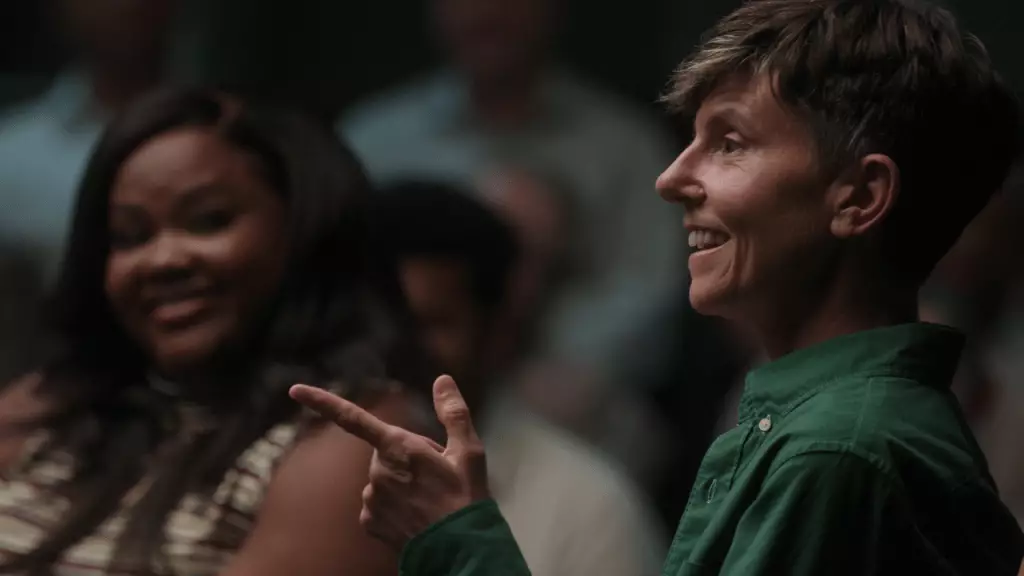Neil Berkley’s Group Therapy is a profound examination of how comedy intersects with grief and mental illness. Featuring a talented ensemble of comedians such as Neil Patrick Harris, Gary Gulman, Nicole Byer, and Tig Notaro, the film delves into the ways these performers utilize humor as a coping mechanism and a form of catharsis. From darkly comedic clips of George Carlin discussing suicide to personal stories of struggles with mental illness, the film sets a poignant and raw tone that immediately draws viewers into the complex realities of the comedians featured.
Each comedian in the film shares their unique journey of developing their sense of humor, often drawing inspiration from their personal experiences. Themes of self-discovery and authenticity are central to the narrative, highlighting the challenges of carving out an identity in the comedy world. The film showcases how personal traumas and struggles shape the comedic acts of the performers, giving insight into the deep emotional layers that underpin their humor.
Vulnerability and Resilience
The film powerfully portrays the vulnerability and resilience of the comedians as they open up about their personal battles with mental health. From Atsuko Okatsuka’s fear of therapy stemming from her experiences with her mother’s schizophrenia to Gary Gulman’s candid discussion of depression and anxiety, each story is a testament to the strength and courage required to confront mental illness. The comedians’ willingness to share their most personal experiences is both commendable and moving, offering a rare glimpse into the struggles they face behind the scenes.
The film also sheds light on the high stakes and challenges faced by comedians in the industry. Mike Birbiglia’s reflections on his years in therapy and the impact of losing friends to addiction highlight the toll that the comedy world can take on individuals. Byer and Hughes share their experiences with racism and fatphobia, revealing the additional layers of rejection faced by Black women in comedy. Despite the struggles, the film also showcases the triumphs of the comedians, demonstrating how humor can be a powerful tool for healing and resilience.
While Group Therapy is a touching and important film, it is not without its flaws. The pacing of the film at times undermines its emotional impact, with poignant moments being quickly followed by comedic clips. Additionally, the heavy focus on Notaro and Gulman may leave some viewers wishing for more balanced screen time among the cast. Despite these drawbacks, the film remains a compelling exploration of the healing power of humor and the importance of addressing mental health openly.
Neil Berkley’s Group Therapy is a must-watch for anyone interested in understanding the profound ways in which comedy can help individuals navigate grief and mental illness. Through the personal stories and reflections of the comedians featured, the film offers a rare and intimate look into the struggles and triumphs of those who use humor as a form of healing. It serves as a poignant reminder of the power of vulnerability and authenticity in storytelling, and a call to recognize and address mental health issues with openness and compassion.

